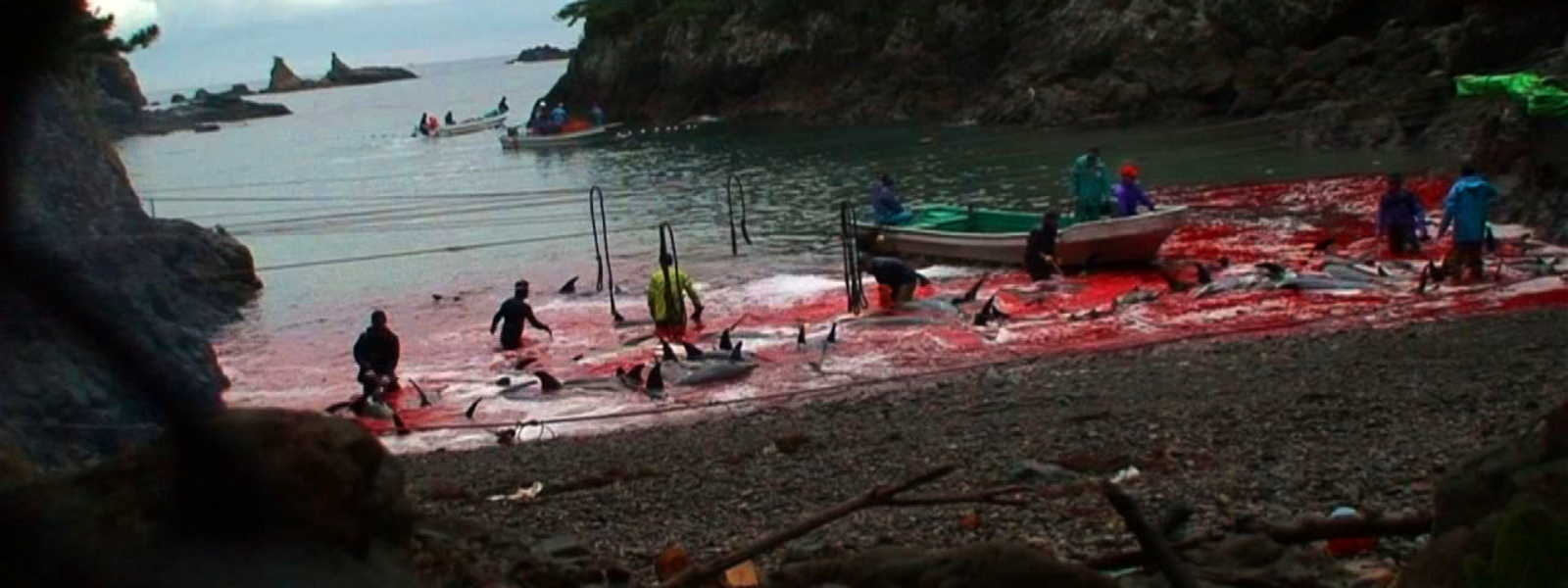

A recent review of several books on fishing caught my eye in the “New York Review of Books,” reviewed by Tim Flannery. At one point in his review, Flannery stated that dolphin hunting in Japan was traditional in many areas. I thought I would correct this misconception, and the NYRB kindly printed my letter with a great response from Mr. Flannery.
“The New York Review of Books” is a prestigious publication reaching many scientists, politicians, and historians, so it provides a great venue to spread the word about Japan’s killing of whales and dolphins.
NEW YORK REVIEW OF BOOKS
November 23, 2017
To the Editors:
Tim Flannery does an excellent job reviewing recent books about fishing and its long-term impacts on human development (“Gone Fishing”, New York Review of Books Sept. 28, 2017, pp 37-38). However, he overstates the case considerably on tying Japanese traditions of fishing for dolphins with current industrial dolphin slaughters and whaling.
Certainly, through time, individual coastal towns in Japan have some history of killing dolphins and whales for food, but it was never a major source of protein until modern times. Today’s mechanized dolphin hunts do not compare and take place in several locations without such a history. In Taiji, for example, the location of the Academy Award winning documentary The Cove, the drive hunts of dolphins were not traditional and did not start until 1969 (there were a few scattered prior years when some dolphins were hunted, but very few). This information comes from Taiji town’s own written history, according to the Elsa Nature Conservancy of Japan. Furthermore, dolphin hunting in Taiji is heavily subsidized by the large fees the town and dolphin hunters receives from selling live dolphins to aquariums and swim-with-dolphins facilities in Japan, China, Russia, and the Middle East, hardly a tradition. Without such high fees for trained dolphins, the Taiji dolphin hunts for meat would quickly shut down. Add to that the heavy contamination of mercury making dolphin meat dangerous to the public, which of course was never part of any “tradition.”
The reason why this is an important point is that the Japanese Fisheries Agency, in a bid to maintain food options in the world’s oceans (Japan is the largest importer of fish in the world) combined with concerns by the fisheries bureaucrats for their own jobs, perpetuates the myth that dolphin meat is part of Japan’s “food heritage” and represents a long tradition. Thus this country, which, since the 19th century, has dropped so many of its traditions in the surge to industrialize and join the modern world, now claims the false “tradition” of killing dolphins and whales must be maintained and increased.
Tim Flannery replies:
I thank Mark Palmer for his elucidation of the history of dolphin hunting in Japan, and the economic motives driving it. While it is clear that dolphin hunting has long been practiced to some degree in Japan, I agree with Mr. Palmer that there is no excuse for killing creatures that are now known to be highly intelligent and empathetic. Previously in these pages (for example, “The Amazing Inner Lives of Animals,” October 8, 2015), I have argued that we need to rethink our relationships with intelligent social beings like dolphins. Stopping the appalling slaughter of dolphins at Taiji is clearly long overdue.
Photo credit Oceanic Preservation Society.